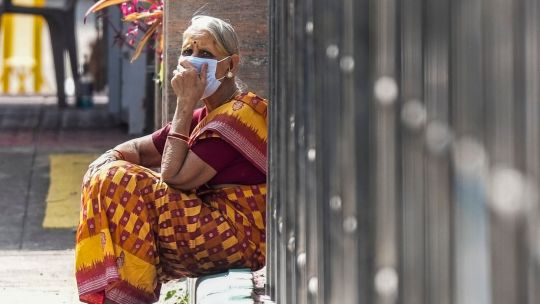#Maharashtra cases
Explore tagged Tumblr posts
Text
VTP Realty is Pune’s leading Real Estate Brand, The case in point being Codename Township Pegasus and Codename Township Blue Waters in East and West

VTP Realty Sales Partner
Pune, Maharashtra, India
+917020787851
A World Of Thoughtfulness, VTP Realty is Pune’s leading Real Estate Brand
VTP Realty is Pune’s leading Real Estate Brand, The case in point being Codename Township Pegasus and Codename Township Blue Waters in East and West
VTP Realty Sales Partner
Pune, Maharashtra, India
+917020787851
A World Of Thoughtfulness, VTP Realty is Pune’s leading Real Estate Brand
VTP Realty is Pune’s leading Real Estate Brand, The case in point being Codename Township Pegasus and Codename Township Blue Waters in East and West

VTP Realty Sales Partner
Pune, Maharashtra, India
+917020787851
A World Of Thoughtfulness, VTP Realty is Pune’s leading Real Estate Brand

#VTP Realty is Pune’s leading Real Estate Brand#The case in point being Codename Township Pegasus and Codename Township Blue Waters in East and West#VTP Realty Sales Partner#Pune#Maharashtra#India#[email protected]#+917020787851#A World Of Thoughtfulness
3 notes
·
View notes
Text
Mumbai: 1500 रुपये में 50 ग्राम चावल बेचते हुए बोरीवली पुलिस ने एक किराना दुकानदार को गिरफ्तार किया
“चावल” गांजे का कोड वर्ड है जिसे केवल दुकानदार और चुनिंदा ग्राहक ही जानते थे। पुलिस भी सुन कर हैरान हो गई कि 1500 रुपये में 50 ग्राम चावल में ऐसी कौन सी खासियत होगी। (Mumbai Borivali police arrested a grocery shopkeeper for selling 50 grams of rice for Rs 1500) मुंबई: बोरीवली पश्चिम के गोराई इलाके से एक किराना स्टोर के दुकानदार को पुलिस ने गिरफ्तार किया है। आरोप है कि यह चावल की आड़ में ड्रग्स…
#1500 रुपये में 50 ग्राम चावल बेचते हुए बोरीवली पुलिस ने एक किराना दुकानदार को गिरफ्तार किया#Big news#Bombay#Bombay news#Borivali#Breaking news#Crime News#Drugs Case#drugs pedlar#Fasttrack#fasttrack news#Gorai grocery store busted for selling ganja by using code &039;rice&039;#gorai news#Hindi news#Indian Fasttrack#Indian Fasttrack News#Latest hindi news#Latest News#latest news update#Maharashtra News#Mumbai Borivali police arrested a grocery shopkeeper for selling 50 grams of rice for Rs 1500#Mumbai News#News in Hindi#News updates#Sale of ganja under the guise of rice#TODAY&039;S BIG NEWS#आज की बड़ी खबर#आज की ब्रेंकिग न्यूज़#चावल की आड़ में गांजे की बिक्री#बम्बई की खबर
0 notes
Text
Fraudster Suryawanshi cheated people from different cities, promising gold at cheap rate, he collected lakhs of rupees from gullible victims

Mukesh Suryawanshi, the fraudster who duped several persons at various cities in the state by luring them with cheap gold, is currently behind the bars. Suryawanshi impressed people by his posh lifestyle and duped them of lakhs of rupees.
A 28 years old woman from Baner, Pune gave Rs 42.80 lakh to the cheat in January 2018. He returned only Rs 17.59 lakh to her. After July 2018, he stopped repayments. He later fled to Dubai. After living there three years, he arrived in Goa on March 6 this year. The police arrested him after arrival at the Goa Airport. He was later handed over to the Mumbai police for further investigation.
Farmer from Dhule falls prey to his guile
The suspect duped a farmer from Dhule of five tolas gold on the lure to get double profit on this investment. The farmer said that Mukesh and his parents were high-profile and had high living standards. Hence, everyone easily believed in them and their promise of higher returns. They earned confidence of the people by making assured repayments for the first three months but later ceased to pay. Suryawanshi has duped around 60 such farmers from Dhule, Nashik, Jalgaon and other districts.
Women from Thane also cheated
Suryawanshi duped two women from Thane district. He told one of them that he will get gold for them at less price than the market. Similarly, in 2013, he duped the other woman saying that he will help her sell her gold at price higher than the market price. Both the women were left high and dry.
Moreover, the conman had cheated several married women on the pretext of marrying them and accepting them along with their children. He took lakhs of rupees from them. He used to find such women on Facebook and duped women from Pune and Ahmedabad in this fashion.
Plaint from alert investor led to arrest
Suryawanshi was caught in the police net due to an alert complainant Satyanand Gaitonde who works as an agent with the National Security Service Canada. Suryawanshi duped him and his family members of around Rs 60 lakh to Rs 70 lakh. Gaitonde has a flat at Dahisar area in Mumbai. He used to come to Mumbai occasionally. According to him, he met Suryawanshi in 2013 on a film set. Later, Suryawanshi contacted him through Facebook and WhatsApp. He gained Gaitonde’s confidence and later asked him to invest in gold as he has started a company. During 2018-19, Gaitonde invested Rs 15.62 lakh. His family members too put in money. When realized that he has taken for a ride, he tried to contact Suryawanshi, but in vain. He later lodged a complaint with the police. Gaitonde has called for strict action against the cheat and also urged people to come forward in large numbers to lodge complaints so that another fraudster like Suryawanshi does not emerge.
#Mukesh Suryawanshi#gold fraud#investment scam#Maharashtra fraud cases#Pune scam#Dhule farmers duped#Thane scam victims#gold investment scheme#Mumbai police investigation#financial fraud arrest#con artist#fraudulent schemes#Goa arrest#investment fraud victims#Satyanand Gaitonde.
1 note
·
View note
Text
"....the main house forms the fourth wall of an intimate motor court protecting the pool and garden beyond. Spread across a one acre plot, the house is a scattered collection of simple forms each carefully placed, proportioned, and oriented in response to picturesque views of the introverted garden and the distant hills of Kankeshwar."
#Villa Uma#Case Design#Satirje#Alibaug#maharashtra#India#Tropical landscape#local materials#modern vernacular
0 notes
Text
Maharashtra Reports 130 Cases of Guillain-Barré Syndrome; Experts Deployed for Investigation
Maharashtra: The number of suspected cases of Guillain-Barré Syndrome (GBS), a rare nerve disorder, has climbed to 130 in Pune and surrounding districts, according to health department officials. So far, two suspected deaths—one from Pune and another from Solapur—have been linked to the condition.Health officials confirmed that of the 130 suspected cases, 73 have been diagnosed as confirmed GBS…
0 notes
Text
बाबा सिद्दीकी मर्डर केस में हुआ बड़ा खुलासा, शूटर ने बताया क्यों अनमोल बिश्नोई ने करवाई हत्या
#News बाबा सिद्दीकी मर्डर केस में हुआ बड़ा खुलासा, शूटर ने बताया क्यों अनमोल बिश्नोई ने करवाई हत्या
Baba Siddiqui Murder Case: राष्ट्रवादी कांग्रेस पार्टी के नेता रहे बाबा सिद्दीकी की हत्या के मामले में बड़ा खुलासा हुआ है। खबर है कि शूटर ने कबूल कर लिया है कि आखिर क्यों सिद्दीकी की हत्या की साजिश रची गई थी। उसने पुलिस को गैंगस्टर अनमोल बिश्नोई का नाम भी बताया है। पुलिस ने इस मामले में 25 से ज्यादा आरोपियों को गिरफ्तार कर लिया है। कुख्यात अपराधी अनमोल बिश्नोई ने ‘दाऊद इब्राहिम से संबंध और 1993…
0 notes
Text
Can you explain the difference between an injunction and the quashing of a writ petition?
An injunction is a legal order that restrains a party from taking specific actions or compels them to act in a certain way. It is preventive and protects rights during a legal dispute.
On the other hand, a quash petition is filed to nullify or invalidate legal proceedings, such as an FIR or writ petition, based on the lack of merit or procedural irregularities.
But i would suggest on consulting experts ensures clarity on legal remedies suited to your situation.
#legalhelp#maharashtra#legal insights#mumbai#thane#legal advice#divorce#advocate for divorce cases#lawyer#domestic violent relationships#quash#quash petition#quashing case#sangare and associates
0 notes
Text
MVA calls for Maharashtra Bandh 24 August
Amid growing anger over the Badlapur sexual assault case, in which two students were sexually abused at school, the opposition MVA called for 'Maharashtra bandh'. MVA leaders had scheduled a meeting to discuss seat sharing for the upcoming assembly elections. However, they decided to put it on hold and instead discuss the Badlapur incident and crimes against women.

#Badlapur Case#Maharashtra Bandh#Crimes Against Women#MVA#Maharashtra Shut down#MVA Protest August 24
0 notes
Text
SC grants bail to ex-Maha Minister Nawab Malik in money laundering case

The Supreme Court on Tuesday granted bail on medical grounds to former Maharashtra Minister Nawab Malik, an accused in a money laundering case, valid till the Bombay High Court decides his plea for regular bail.
A bench presided over by Justice Bela M. Trivedi passed the order after NCP leader Malik’s lawyer submitted that his lung had collapsed and required medical treatment.
Source: bhaskarlive.in
0 notes
Text
Wooden Storage Cases
JK Wood Wool Industries is pleased to offer its expertly and carefully manufactured wooden storage cases. These cases are ideal for arranging your area with a dash of organic elegance because they combine practicality with aesthetic appeal. They promise longevity and classic style because they are made of premium wood. If you're looking for storage solutions that combine functionality and quality, choose our Industry line.

E-623, 24, Phase 7, Focal Point Phase 6, Focal Point, Ludhiana, Gobindgarh, Punjab 141010
9814069605
#jkwoodwoolindustries#jkwoolindustries#jkwoodindustries#wooden accessories#Wooden Cases#Wooden plwood#Packing Wood wool#Wooden Pallets#Woodwool Plywood#Wooden Cases in Ludhiana#Packing Wood wool in Ludhiana#Wooden Pallets in Ludhiana#Woodwool Plywood in Ludhiana#Wooden Cases in Bangalore#Wooden Cases in Faridabad#Wooden Cases in Ahmedabad#Wooden Cases in Nagpur#Wooden Cases in Kolkata#Wooden Cases in Maharashtra#Wooden Cases in bhiwandi
0 notes
Text
Case Study MIDC
MIDC, Maharashtra Industrial Development Corporation, a cornerstone of Maharashtra's industrial landscape, was facing challenges in operational efficiency and transparency. To optimize operations, they turned to us for end-to-end digitalization. Our e-Governance product, PWIMS®, transformed their project functions and tender processes, driving significant savings in time and costs. Now, MIDC operates seamlessly, upholding global standards and ensuring transparency at every turn.

#case study#MIDC#maharashtra#architecture#engineering#infrastructure#construction#softtech#software development#project management
0 notes
Text
Covid JN.1 LIVE: 63 cases of new variant reported in 24 hours, Karnataka Cabinet sub-committee meeting today
COVID-19 JN.1 Variant News Live Updates: Amid growing concerns over rising cases of COVID-19 sub-variant JN.1, a total of 63 cases of the sub-variant have been detected in India as of Sunday. Citing Health Ministry sources, ANI on Monday reported that Goa is the biggest contributor to the cases, where 34 cases were reported in a single day. Apart from Goa, nine are from Maharashtra, eight from…

View On WordPress
#Cabinet#cases#Corona virus cases in my state#COVID#covid 19 cases in india#Covid 19 JN.1 variant#covid 19 latest updates#covid 19 live updates#Covid JN.1 LIVE: 63 cases of new variant reported in 24 hours#COVID JN.1 variant#covid kerala#covid kerala news#covid live updates.covid restrictions#covid maharashtra news#covid new variant#Hours#JN.1#Karnataka#Karnataka Cabinet sub-committee meeting today#Live#Meeting#reported#subcommittee#Today#today&039;s covid cases#variant#What is the new variant of Covid?
0 notes
Text
Mumbai Bank Fraud: ईडी का 12 ठिकानों पर छापामारी, बैंक से धोखाधड़ी का पर्दाफाश
Money Laundering Case: ED ने न्यू इंडिया को-ऑपरेटिव बैंक (New India Co-operative Bank) धोखाधड़ी मामले में सख्त कार्रवाई करते हुए मुंबई के 12 ठिकानों पर छापेमारी की है। जहां से अहम दस्तावेज और वित्तीय लेन-देन के सबूत जब्त किए गए। (Mumbai Bank Fraud ED raids 12 locations, bank fraud exposed) ED Raid In Mumbai: प्रवर्तन निदेशाल�� (ED) ने मनी लॉन्ड्रिंग निवारण अधिनियम (PMLA) 2002 के तहत मुंबई के 12…
#bank fraud exposed#Big news#Bombay#Bombay news#Breaking news#Central government#Chandrakant Patel#Crime News#ED Raid In Mumbai#ED raids 12 locations#Enforcement Directorate#Fasttrack#fasttrack news#Hindi news#Indian Fasttrack#Indian Fasttrack News#Latest hindi news#Latest News#latest news update#Maharashtra News#money and finance#Money Laundering Case#Mumbai Bank Fraud#Mumbai News#Mumbai police#New India Co-operative Bank#News in Hindi#News updates#Pushpak Bullion Private Limited#Rialto Exim Private Limited
0 notes
Link
0 notes
Text














Villa Uma, Satirje, Alibaug, Maharashtra, India,
Courtesy: Case Design
#art#design#architecture#minimal#nature#interior design#interiors#minimalism#retreat#uma#india#maharashtra#alibaug#satirje#casedesign#gardens#residential
123 notes
·
View notes
Text
Three crocodiles saved a dog seeking refuge in a river - in a possible display of "emotional empathy". A report published in the Journal of Threatened Taxa outlines how a young dog was observed being chased by a pack of feral dogs and entered the shallow waters of the Savitri River, in India's Maharashtra. The dog had not spotted the three mugger crocodiles floating nearby, which began edging closer to what appeared to be certain prey. The adult reptiles - described by the Wildlife Institute of India as "opportunistic predators" - instead pushed the dog to safety using their snouts. They even guided him to an area of the riverbank that wasn't occupied by the feral pack, allowing the dog to make a safe escape on land. It was an action the journal said may have been down to "sentient behaviour suggestive of cross-species empathy". The "curious" incident was uncharacteristic of the crocodiles.
Continue Reading
354 notes
·
View notes